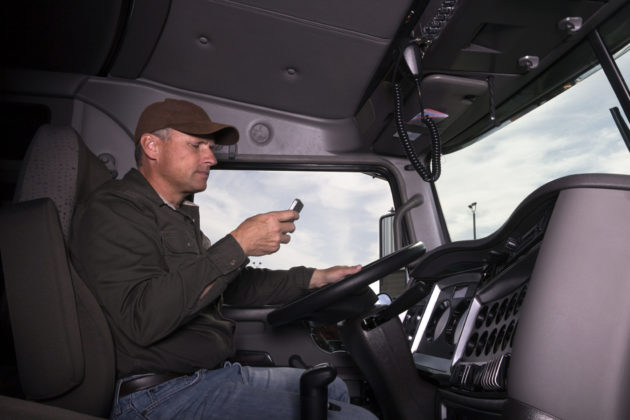Little ‘wiggle room’ in distracted driving laws
Distracted driving laws have emerged in several jurisdictions to discourage people from using handheld cellphones when behind the wheel – and this can include disabled devices or devices that are not physically in your hands.
Recent court rulings in British Columbia demonstrate how such laws can be interpreted.
In June 2020, the British Columbia Court of Appeal confirmed that holding a cellphone while driving is an offence even when the device is disabled or turned off. On July 27, 2021, the same court confirmed in R. v. Rajani 2021 that “holding” an electronic device is not limited the cellphone being in your hands.

The B.C. Motor Vehicle Act says cellphones or other handheld electronic devices include a cell function, or they can transmit or receive electronic mail or other text-based messages. The “use” refers to “holding the device in a position in which it may be used”.
In the 2020 case, R. v. Tannhauser, the driver received a ticket because he was holding his cellphone at the top of his steering wheel while driving on the Trans-Canada Highway. He testified that he was not “using” the cellphone, but was instead relocating it from the passenger seat to access papers. His cellphone was also disabled by an app that engaged while he was driving. At most, he was only holding a cellphone that wasn’t working.
The B.C. Court of Appeal decided that a disabled cell phone is only temporarily disabled — whether by an app or because it is turned off — and that such cellphones are still electronic devices. A darkened lamp is still a lamp. Only if it no longer had any capacity to make calls or send electronic data would a disabled cellphone no longer be an electronic device. This being the case, holding an electronic device while driving was an offence. The appeal court reasoned that if the B.C. legislature wanted to create an exception for non-functioning devices, the law would have specifically said so, since other exceptions are contained within the Motor Vehicle Act.
In this year’s ruling, R. v. Rajani, the driver was issued a ticket in 2019 for using an electronic device contrary to the Motor Vehicle Act. At trial, he admitted that his cellphone was wedged between his right thigh and car seat, and that he was charging it. At trial, the provincial court judge found that Rajani was still using the device even though it was wedged and being charged. The judge said the precariously placed phone could be dislodged during an evasive action to avoid a collision, distracting the driver.
Supreme Court Justice Heather MacNaughton disagreed with the provincial court’s decision, confirming “The [Motor Vehicle Act] does not prohibit the presence of an electronic device in a vehicle solely on the possibility that its mere presence may be a distraction. The prohibition is against the use of an electronic device, including a cellphone.”
But MacNaughton still found the driver guilty of the offence, confirming that “holding” means physically grasping, carrying, or supporting something — and the offence relates to “holding a device in a position in which it may be used”. The judge reasoned that, if this was not the case, then drivers would be allowed “to operate their vehicles with electronic devices in their laps, between their thighs, tucked under their arms or chins, or supported by other parts of their bodies”.
Rajani appealed again to the B.C. Court of Appeal. However, he was again unsuccessful. The court found that the word “holding” was not restricted just to the use of someone’s hands, and that the law extended beyond handheld devices to include things like GPS units. It also found that the B.C. legislature was trying to achieve a broad definition of “holding”, to capture the conduct associated with distracted driving.
It is clear that distracted driving is a very serious offence, and permitted use of cellphones while driving is very restricted.
The law will continue to be strictly interpreted with very little “wiggle room”.
Have your say
This is a moderated forum. Comments will no longer be published unless they are accompanied by a first and last name and a verifiable email address. (Today's Trucking will not publish or share the email address.) Profane language and content deemed to be libelous, racist, or threatening in nature will not be published under any circumstances.